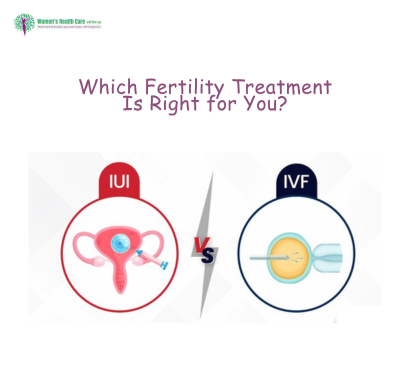Infertility affects many couples today, and assisted reproductive technologies (ART) like Intrauterine Insemination (IUI) and In Vitro Fertilization (IVF) are widely used to increase chances of conception. Choosing between IUI and IVF is an important decision influenced by age, diagnosis, budget, and emotional resilience. Here’s an in-depth guide to help you evaluate which fits your journey.
Understanding IUI vs IVF
A. What is IUI?
- Sperm is washed and placed directly into the uterus during ovulation.
- Involves minimal intervention and stimulation.
- Best when mild male factor, unexplained infertility, or cervical issues are present.
B. What is IVF?
- Ovarian stimulation, egg retrieval, fertilisation in the lab, and embryo transfer.
- Suitable for severe male factor, blocked tubes, advanced maternal age, or genetic screening.
Step-by-Step Process Comparison
IUI Steps:
- Ovarian monitoring via ultrasound.
- Mild hormonal stimulation (Clomid or injectables).
- Sperm preparation and timed intrauterine transfer.
- Pregnancy test after 2 weeks.
IVF Steps:
- Full ovarian stimulation (hormone shots).
- Egg retrieval under sedation.
- Fertilisation in lab incubator.
- Embryo culture and selection.
- Transfer 1–2 embryos.
- Pregnancy test after 2 weeks.
Success Rates & Factors
| Treatment | Ideal Age | Avg Success Rate |
| IUI | <35 | 10–20% per cycle |
| IVF | <35 | 40–50% per cycle |
| 35–40 | IVF: 20–30% |
Key Factors:
- Age and egg quality
Sperm health - Cause of infertility
- Lifestyle (BMI, diet, sleep)
- Emotional support
Cost Comparison (India)
| Treatment | Per Cycle Cost (INR) | Additional Costs |
| IUI | ₹15,000–₹40,000 | Medications ₹5–10k |
| IVF | ₹1,40,000–₹2,50,000 | Medications ₹30k–₹60k |
Financial Tips:
- Start with IUI in mild cases before moving to IVF.
- Check package offers with medication included.
- Budget for 3–4 cycles to increase success chances.
Risks & Considerations
IUI:
- Mild side effects from hormone meds
- Risk of multiple pregnancy if multiple eggs released
- Minimal discomfort and convenience
IVF:
- Hormonal side effects, ovarian hyperstimulation risk
- Invasive procedures: egg collection/pitocin
- Emotional and physical toll
- Risks like multiple pregnancy or procedure complications
Who Should Choose Which?
Choose IUI if:
- Age <35, unexplained infertility, mild male factor, ovulation issues.
- No severe tubal blockage.
Choose IVF if:
- Bilateral tubal block, older age, poor sperm
- Previous IUI failures
- Genetic screening needed
👉 In many cases, doctors recommend trying 3 cycles of IUI before switching to IVF.
Emotional and Physical Preparation
- Discuss therapy or support groups for the emotional toll
- Maintain healthy diet, exercise, manage stress
- Attend all follow-ups and understand procedures
Choosing between IUI and IVF depends on fertility diagnosis, age, costs, and your emotional readiness. Starting with IUI can be less invasive and cost-effective. If unsuccessful, IVF offers higher success with more complexity. Work closely with your fertility specialist to design a personalized treatment path, and remember self-care and support matter as much as medical decisions.
FAQs
Q1. How many IUI cycles should I try before IVF?
Typically 3–4 IUI cycles are recommended. If unsuccessful, then IVF is advised—especially for women over 35.
Q2. Can IVF guarantee pregnancy?
No guarantee—IVF success rates depend on multiple factors but currently hover at 40–50% per cycle in healthy young couples.
Q3. Does BMI affect success rates?
Yes—both overweight and severely underweight women face reduced success in IUI/IVF. A BMI of 18.5–24.9 is ideal for treatment.

